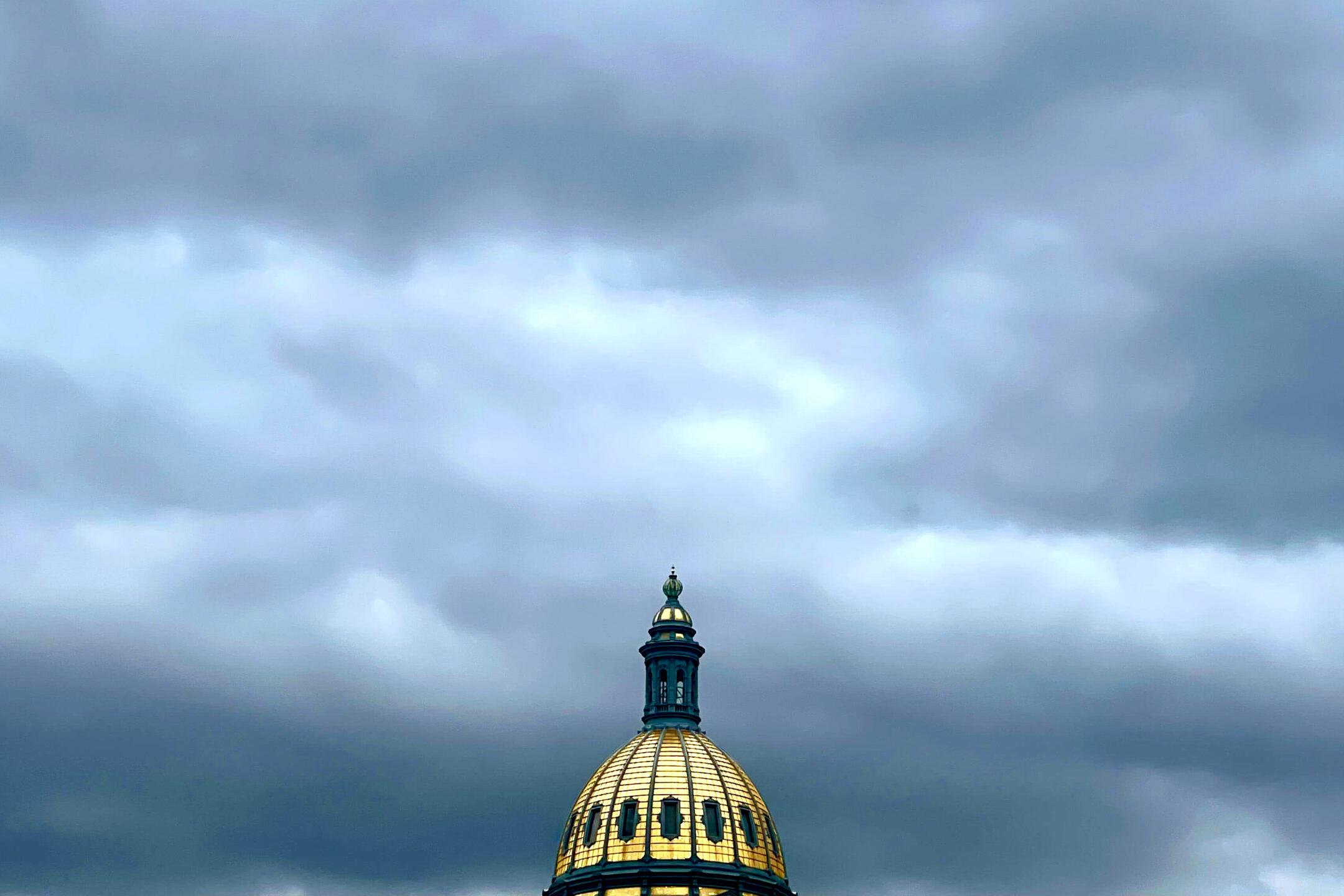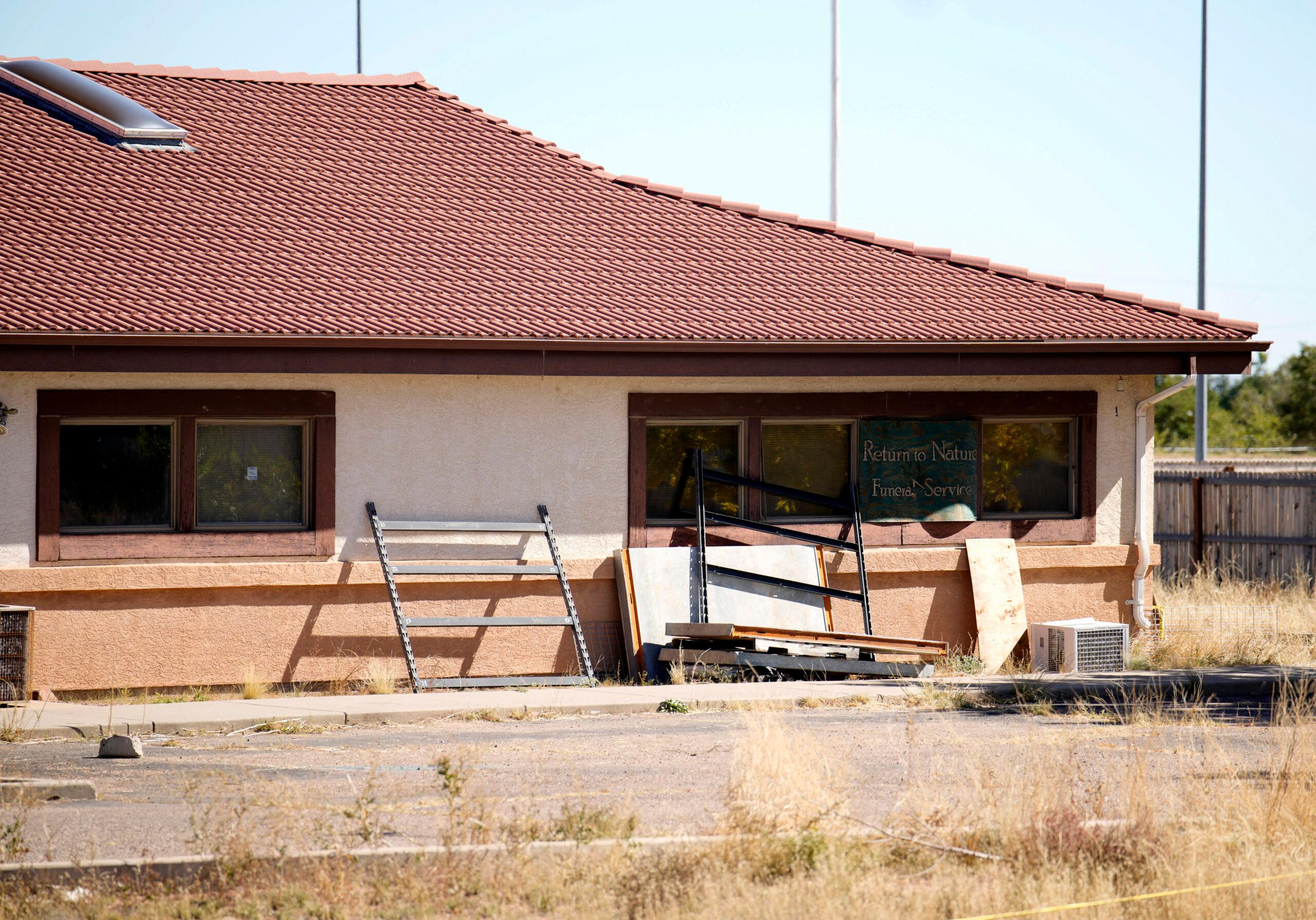
Proposition HH, which will appear on Coloradans’ ballots this fall, has been marketed by the state’s top Democrats as a plan to reduce property taxes. But that’s only part of the picture.
If the economy performs strongly, the measure could also take away billions of dollars in TABOR tax refunds and use that money to grow funding for public schools — a possibility that Gov. Jared Polis’ administration has not advertised, despite the fact that it’s a key goal of the Democratic Party.
“At first blush, this is really less about a property tax cut and more about education funding,” said Kevin Bommer, executive director of the Colorado Municipal League, which opposed the introduction of the ballot measure.
“I think a lot of people would support [education funding]. I was kind of surprised, in retrospect, that that wasn't what the lead purpose for the legislation was,” Bommer added.
The measure would rewrite the state’s tax system for at least a decade. It would lower property tax rates, saving billions of dollars for homeowners and other property owners. At the same time, it would substantially shrink the income tax refunds that are paid to millions of Coloradans in the form of “Colorado Cashback” checks and other methods — and it would allow state spending to grow faster than current limits set by TABOR.
The Polis administration has not granted CPR News’ request for an on-the-record interview about the fiscal effects of the measure, nor have they provided financial projections to show the full extent of how tax dollars might be redistributed over the full ten-year span of Prop. HH. But in an earlier interview with Colorado Matters, the governor focused his pitch for the measure entirely on the property tax reduction.
“I think it's the best chance Colorado voters have to significantly reduce your property tax rate,” Polis said.
In contrast, experts and policymakers from across the spectrum say that Prop. HH could indeed provide a boon for school funding, with substantial effects on the state budget.
Tracie Rainey, executive director of the nonpartisan Colorado School Finance Project, said that Proposition HH may help the state finally meet the school funding requirements created by voters under Amendment 23.
If the economy cooperates, the measure “will bring us back to a better place than we've been,” she said, though she cautioned that it’s hard to predict the results of a multi-year tax plan.
Rep. Mike Weissman, a Democratic sponsor of the measure, said Prop. HH was primarily aimed at cutting property taxes. But he acknowledged that it would make the most substantial change to the state’s revenue restrictions and TABOR refunds in nearly 20 years, which could ultimately benefit the education budget.
“Over time, we want to catch up on that deficiency [in schools funding]. We want to do a better job investing in schools in our state, at the same time as we are making property taxes more affordable for people,” he said.
Paul Teske, Dean of the School of Public Affairs at CU Denver, described the measure as a “clever strategy” that could allow Democrats to loosen TABOR’s fiscal restraints and grow the state budget, bringing Colorado closer to the spending levels of other comparable states.
“I think it’s an attempt to solve a couple of problems with one proposition,” Teske said.
The governor has acknowledged that the measure could result in higher spending, but said that was just one possible outcome, and his office has steadfastly denied that Prop. HH was designed to help increase funding for education.
“[If] you’re looking at economic modeling, you can come up with three scenarios where it does and six scenarios where it doesn't [grow the schools budget],” Polis said in the Colorado Matters interview.
Conservative critics, however, say the administration is trying to sneak a school funding measure to victory under the cover of the property tax cut. That argument is at the crux of a lawsuit before the state Supreme Court, with the plaintiffs arguing that Democrats have made Prop. HH unconstitutionally broad.
“They’ve decided they’re just not going to be honest anymore,” said Tyler Sandberg, a Republican political consultant. “They’re going to kill [TABOR] through an end-run and not tell voters what it’s really doing.”
Here's what we know — and don’t — about a plan that could significantly redraw state finances for a decade or more.
How Democrats say it will work:
Proposition HH asks voters to make a tradeoff.
If the measure passes:
- Property tax rates will be cut, saving an estimated $1 billion per year for property owners within a few years, and more in later years
- TABOR tax refunds will be reduced substantially, allowing the state to hold onto billions of dollars instead of paying them back to taxpayers. This effectively raises income taxes in years when the economy is strong.
- The repurposed refund money will instead be given to schools and some local governments. This money must first be used to offset some of the impact of the property tax cut to local districts, with any extra funds going into the state education fund after that.
- A much smaller amount, up to $20 million a year, will go toward relief programs for renters
Prop. HH supporters argue that by sacrificing the refund money, voters would allow much bigger savings on property taxes.
“We have record surpluses,” Polis said in the interview, referring to tax refunds that have totaled more than $3 billion in two recent years. “Let's use some of those surplus funds to make sure that we can reduce taxes and partially backfill many of those entities so they don't have to slash their budget and the services that they offer.”
In the early years, the measure’s impact on TABOR refunds would be relatively small. Most taxpayers would lose no more than a few dozen dollars from their upcoming refunds, while homeowners could save hundreds because of lower taxes.
But the effects would ramp up, and Prop. HH eventually would redirect up to hundreds of millions — and then, billions — of dollars per year that otherwise would be refunded to taxpayers.
Taking billions from refunds
At its heart, Prop. HH would loosen the formula that restricts the size of Colorado’s budget.
The Taxpayer’s Bill of Rights, approved by voters in 1992, is meant to slow the growth of government. It says that the general fund — which is the pile of money that lawmakers most fully control — can only grow each year at a rate equivalent to population growth plus inflation. It’s part of the reason Colorado spends less on government and public services than most other states.
If passed, Prop. HH would make a subtle but substantial change to that formula. The general fund would be allowed to grow at an extra one percent per year, beyond population and inflation.
That might not sound like much — what’s a percent between friends? But it would add up quickly. The extra percentage point would compound upon itself — allowing the impact to grow from millions to billions over several years, according to data provided by legislative analysts.
Most of the retained money would go straight to the state education fund, where it would make up for lost property tax revenue and potentially deliver new funding to schools, too.
Polis says it’s a worthwhile tradeoff. He points out that TABOR refunds are only paid out in certain years, when the economy is strong. So, he argues, voters would be giving up a chance of a refund and getting a guaranteed reduction in property tax rates.
“The Governor has repeatedly pointed out that you can model state revenue under lots of different circumstances depending on economic growth but the property tax savings of Prop. HH are locked in, which is why the Governor believes this policy will give the needed relief on property tax,” wrote spokesperson Melissa Dworkin in an email.
It’s impossible to say exactly what the measure will mean for individuals’ TABOR refund totals, since economic forecasting beyond a couple years is very difficult — but the effect could be substantial, according to a memo obtained by CPR News through a public records request.
For example, administration economists project the state could owe about $1.8 billion back to taxpayers for fiscal year 2027, the memo stated. In that scenario, if Prop. HH passes, about $789 million — nearly half of the potential refund total — would instead go to schools and other local districts.
And by tax year 2033, the measure would repurpose up to $2.2 billion of TABOR refunds. For comparison, the largest refunds in state history have ranged between $2 billion and $3.8 billion, all in recent years.
TABOR refunds can be paid out in a number of ways. Historically, wealthier people have gotten bigger refund checks, since they pay more in income taxes. But the Democratic-controlled legislature has changed the formula for recent payouts, giving equal checks to everyone and benefiting lower-income people at the expense of the wealthy. Some see those “flat” refunds as a popular way to make the tax system more progressive.
One of the biggest changes in decades
Prop. HH is one of the biggest changes to TABOR proposed in decades — alongside measures like 2019’s failed Prop. CC, and Ref. C, the 2005 measure that originally loosened TABOR’s revenue limits.
“It basically will be eliminating TABOR,” said Republican Sen. Barbara Kirkmeyer. By the year 2033, the state’s general fund could grow about 9 percent larger, compared to the current limits, according to legislative analysts’ projections.
Democratic Rep. Weissman said that while TABOR refunds would be reduced, voters would still retain their authority over future tax increases — a core part of TABOR.
“It acknowledges that the 30-year-old TABOR calculus maybe is worth revisiting, in a modest way, from time to time,” he said.
Teske, of CU Denver, said that Colorado is currently in the bottom 10 states for government spending per person, despite its high income levels. That could change somewhat if revenue limits are loosened by Prop. HH, he said.
“This will definitely be a non-trivial extra amount of money that the state will be able to spend if it passes,” he said, “but it's not going to make us a high-spending state either.”
The impact of Prop. HH could grow even larger in the more distant future, since the measure would remain in effect until it’s altered by lawmakers or voters. If allowed to continue undisturbed for two decades, the measure could allow up to $10 billion of additional state spending per year by 2043, according to estimates by CPR News.
Where would all that money actually go?
The Polis administration has stressed that the repurposed refund money will first be used to counteract the effects of the property tax cut on schools and cities.
Property taxes are collected by local districts, such as cities, school districts and fire districts. If property tax rates are reduced, that means less money for those bodies. Prop. HH would fully replace the lost money for schools and partially replace it for other districts.
That “backfill” cost could add up to about $423 million in fiscal year 2025, the last year for which state estimates were available.
It sounds like a steep tab — but the measure could soon give the state more than enough money to pay the bill. In fiscal years 2026 and 2027, Prop. HH is projected to bounce $565 million and then $789 million of refund money into the education fund, according to an internal memo obtained by CPR News.
And if the economy stays strong, the redirection of tax dollars from refunds to education could soon grow into the billions.
That possibility — the measure drawing in substantially more refund money than the state needs to pay back local districts for the tax cut — is at the heart of a lawsuit from conservatives, who are trying to disqualify Prop. HH from this November’s ballot. They say that the measure is unconstitutional because Democrats tried to bind together two different topics, school funding and property taxes, when they created the proposition.
“While a dollar-for-dollar ‘backfill’ of local property tax revenue would be logically connected to property tax reductions, retaining money in excess of the TABOR revenue cap to fund new spending beyond backfilling is not. The massive retention of state revenue in Proposition HH is a source of separate and additional state spending on public education,” wrote the attorneys for a conservative coalition.
Of course, it’s not guaranteed that Prop. HH will deliver major money to state coffers. If the economy is down, the state may not have a surplus at all. Instead of having extra money to spend as a result of Prop. HH, state lawmakers could end up scrounging for funds just to pay for the effects of the property tax cut — and recessions can leave a long hangover.
Polis administration officials deny they’re intentionally trying to increase overall school funding. Instead, they argue the money is meant to balance out over the long run.
“Prop HH ensures schools will not lose money from property tax cuts. If state revenue growth is continuously strong in the future, then the state may retain more revenue in the State Education Fund than is needed for backfill. However, there will be years ahead without state surpluses, so the state will need to reserve funds to cover the backfill in those years,” wrote Dworkin, the Polis spokesperson, in response to questions about whether the measure was meant to benefit schools.
But other Democrats say that if Colorado’s economy performs, Prop. HH would turn TABOR refund dollars into some progress on their education goals.
“It should especially help schools over the longer term, but it's really not the most elegant way to do it,” said Rep. Chris deGruy Kennedy, a sponsor of the measure. “If our goal was to really raise the kind of money schools need to be the best funded schools in the country, this is far from the way I would've done it.”
Voters are set to decide the fate of the measure on Nov. 7.









